My summary of WordCampNZ 2010 in Auckland, August 7-8, 2010, continues. If you have not read the beginning, you can read Part 1.
Bill Bennett – Writing for blogs
Bill Bennett has decades of experience as journalist and shared his wisdom with us in regard to what journalism can teach bloggers. He already summarized his presentation nicely. A few words that I want to highlight:
- a lot of things that applied to newspapers of old are true again today in blogging, e.g. to write concisely (I have not yet mastered that art)
- keep it simple: your audience often is often second-language speakers
- keep sentences short and simple -> 15-20 words
- don’t fill the entire screen with your words, but have short lines as reading on screen is already in general 20% slower
- he called headings “page furniture”
- remember to cover “who, what, why, when, where” close to the top to give the reader direction
- make your points in descending order so that a reader could stop at any point and still get the entire story (and only get additional info when reading on)
Take-home message: Writing for blogs has a lot of same features as “good ol'” newspaper journalism that many journalists don’t know how to write anymore. Revive the old art.
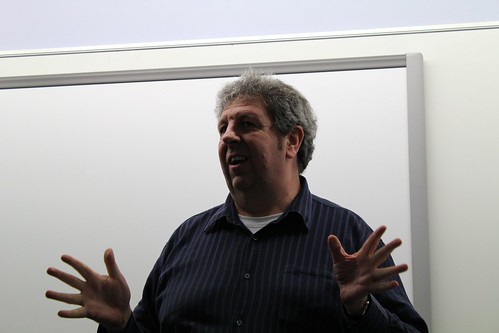
Jo Couchman – A plugin for every occasion
Jo wanted to share with us her favorite and most useful plugins. Unfortunately, the Wifi didn’t cooperate and she spent most of her speaking time trying to get connected to the internet. However, you can view her presentation online and check out the plugins she suggested for yourself.
Take-home message: There’s a plugin for virtually everything. Check it out via Google and read comments about it before installing it (cf. Quintin Russ’ presentation).
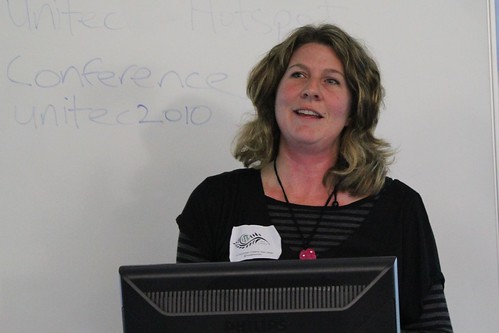
Pippa Coom and Suzanne Kendrick – Community Management
Pippa introduced us to the Grey Lynn 2030 Transition Community. This is a community exploring sustainability and acting upon it. They also have a virtual home that she presented. The site connects local people around the idea of improving their community. They have established a community garden, started a Farmer’s Market and so on. The community members are also very active online.
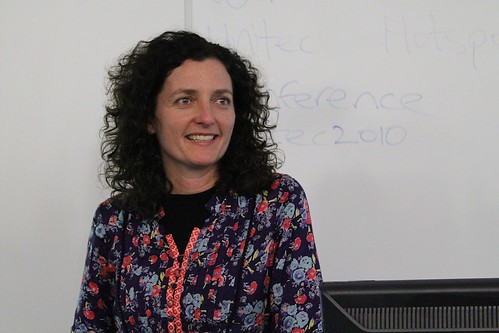
Suzanne talked about community management in general and gave useful tips, among them the following:
- An online community manager must personify the soul of the company -> be “on brand” -> intrinsically personify the product, e.g. because you use it yourself, fit the target group etc.
- Be personal, be authentic and use your real name and voice.
- Be a bridge between the company and customers.
- Companies should have only one Twitter account and not several because that gets confusing for people who want to follow the company and are put before the task of subscribing to a multitude of Twitter channels.
- Remember: 1 creator, 10 commentators, 1000 lurkers -> Even if you think nobody listens / reads, there are lots who do. You just don’t know about them.
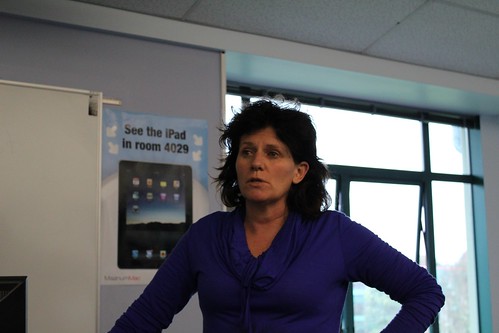
Take-home message: Community management becomes more important and should not be neglected. It should be viewed as essential and engaged in appropriately.
Sacha Dylan – Who are your audience
Sacha shared facts about disabled people in New Zealand and how they are disadvantaged when accessing the internet. A lot of sites are not made with people with disabilities in mind. He pleads his case that everybody should at least be able to access the content of a page in one version or the other. Often that already involves developers running their page through a color check. His presentation slides.
Take-home message: Accessibility to web content for people with disabilities is still not guaranteed widely and needs to be improved.
Justin Scott and Sam Dalton – Vital Gifts app

WordCamp is not only about WordPress, but great ideas in general and issues that can be presented using WordPress. Justin and Sam talked about their app VitalLink that they will launch in September.
the idea behind is VitalLink is the following: It is a storefront for Fairtrade where you can choose a real gift for a friend, have it delivered by the closest supplier and post a status update on your favorite social network (in the first version only Facebook) letting everybody know that you supported Fairtrade. In a latter version it will be possible to delay the delivery of a status message until after the friend has received the surprise gift.
The app wants to promote Fairtrade and better wages for producers in Third World Countries and at the same time give people an easy way to purchase Fairtrade products.
I think this is a cool idea with great potential for people to use it because you cannot get Fairtrade everywhere in a store.
Take-home message: If you have a cause in mind, do something and don’t just think about it.
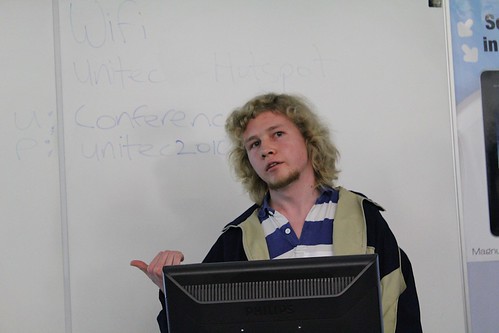
That concludes the first day WordCampNZ 2010. Day 2 will be covered in the Part 3. If you missed the earlier presentations I followed, you can read Part 1.
![]() This work is licensed under a Creative Commons Attribution-ShareAlike 4.0 International License.
This work is licensed under a Creative Commons Attribution-ShareAlike 4.0 International License.
Wow Kristina – an excellent description of WordCampNZ. Almost as good as being there.
Great summary Kristina – I’ve bookmarked this to keep as my reference to the sessions.